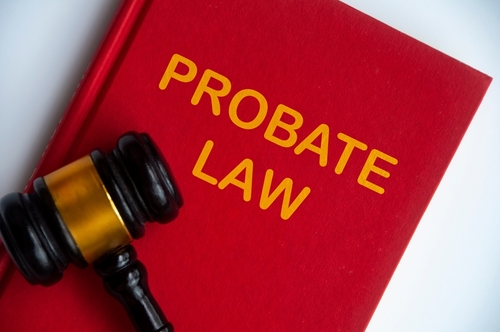Do you have a Last Will and Testament? Only about half of U.S. adults have one, according to a Gallup poll. Writing a will is a great start in drafting an estate plan, but an estate plan is much more comprehensive than drafting a will or even having a trust.
Consider for a minute the inevitable. Suppose you die tomorrow. Have you taken care of your loved ones? Does someone know how to access all of your accounts, bills, documents, and online passwords? For most people, the answer is no.
A comprehensive estate plan eases the transition when your family members need to access or control your assets either because you have died or can no longer do so yourself. Everyone has online accounts and assets, not just the wealthy. Everyone can benefit from a well-crafted estate plan.
Last Will and Testament
A will is a legal document that outlines your wishes for distributing your assets after you die. It also enables you to name beneficiaries for your accounts and designate a guardian, and backup guardians, for your minor children. Without named guardians, it will be up to the probate court to name a guardian for your children.
An executor or administrator of your will files it in probate court and ensures that your wishes are fulfilled. After the probate court verifies the authenticity of your will, your executor will notify all parties named in your will and all creditors, and the process of paying your bills and distributing your assets will begin.
Writing a will is not a single event. You should review and update your will as your life circumstances change. For example, if your child gets divorced, you may want to update your will so their ex-spouse no longer receives your assets.
Trust
A will must go through the probate process. Because this process can be time-consuming, costly, and stressful, many people opt to have a trust in addition to their will.
A trust is a fiduciary agreement between a grantor (the person who funds the trust) and a trustee to whom the grantor delegates authority to hold and manage trust assets in accordance with the instructions outlined in the trust documents.
Unlike a will, which only takes effect upon your death, a trust can be active throughout your lifetime and continue upon your death.
Some trusts are also used to limit estate taxes and safeguard assets from creditors and legal challenges.
If you have minor children, you could name a guardian in your will but could also establish a trust to care for their financial, medical, educational, and other needs.
Having a will and a trust are important components of a comprehensive estate plan. Ensure all estate documents are consistent with how you have bequeathed your assets. This can limit potential legal battles in probate court.
Power of attorney
In addition to transferring assets and wealth upon your death to care for your loved ones, it is also important to establish a financial power of attorney while you are of sound mind and body. A power of attorney is a trusted friend, family member, or professional who will act on your behalf when you can no longer do so.
A power of attorney is a person you designate to take care of your financial and legal affairs according to your wishes if you become incapacitated. If you do not name a financial power of attorney and can no longer manage your affairs, the court will need to assign someone to fill this role.
You may choose to give your power of attorney limited rights for a very defined purpose, or you may give them the power to sign any and all documents on your behalf. They may be given the power to transact real estate, make legal decisions for you, and enter into financial agreements. You can revoke these powers as long as you are mentally competent to do so.
Healthcare power of attorney
A healthcare power of attorney is a person you designate to make important healthcare decisions for you if you lack the capacity to do so. Choose this person carefully, as they could make life-and-death decisions for you.
A living will (advance directive) is a document that outlines your healthcare wishes, especially if you need extraordinary medical care. This document allows you to decide in advance whether you want advanced life support, such as cardiopulmonary resuscitation (CPR) and a ventilator, to help you breathe if your heart stops. Your healthcare power of attorney should be familiar with the contents of your living will and have a copy of it.
Having multiple copies of your living will and naming a backup healthcare power of attorney is a good idea.
Beneficiary designations
Verify that all your financial accounts, retirement accounts, and insurance policies have a named beneficiary and contingent beneficiaries. Doing so will allow these accounts to pass to your heirs without going through your will.
If you do not name beneficiaries for your accounts, or the beneficiary you have named is deceased or unavailable, a court will determine who receives your financial assets.
Your beneficiary designations supersede instructions in your will. Review and update your beneficiaries regularly and ensure they are consistent across all your estate documents.
Other documents
Your estate plan may include passwords for online accounts, instructions for closing social media accounts, location, access instructions for digital properties, and letters of instruction to your executor or guardians to express your reasoning for how you divided your assets.
Creating an estate plan is a highly individualized process during which you consider your unique financial and family circumstances, family dynamics, and financial goals. To ensure your estate plan clearly conveys your wishes and is legally sound, working with an experienced estate planning attorney is important. They will guide you through the process and provide additional points to consider.
Schedule an appointment with the attorneys at Katzner Law Group to discuss your estate planning goals, create custom estate planning documents that meet your specific needs, and discuss how different estate planning options impact you and your loved ones’ financial future.
We welcome you to schedule a call with us or reach us directly at 855.631.3457 to learn more about how best to plan today to protect those most important








